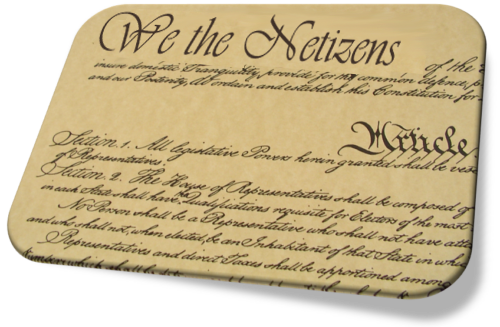In today’s digital age the internet has become an integral part of our daily lives. Internet platforms have gained significant power over the internet in recent years due to their central role in facilitating communication and the exchange of information. Many internet users rely on platforms such as social media and search engines to discover and access online content, and these platforms have become gatekeepers that control the flow of information. Additionally, internet platforms often have access to vast amounts of data about their users, which they can use to tailor their services and target advertising. This combination of control over the flow of information and access to data gives internet platforms significant power and influence in the digital world.
Therefore, it is important that we, the Netizens have clear guidelines and protections in place to ensure that our online experiences are safe, fair, and respectful. A Bill of Rights for the internet should help to safeguard against abuses of power, promote privacy and security, and ensure that the internet remains a vibrant and open platform for communication and innovation.
We are aware that the internet is global, but that norms and laws are often only local and that law enforcement is also not handled uniformly. Nevertheless, we think it is important to establish a global understanding of the basic rights of all people who use the internet.
Overall, we think that a Bill of Rights 2.0 for the internet should be a positive step towards building a more just and equitable digital society.
